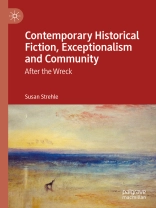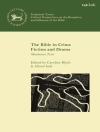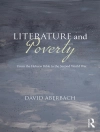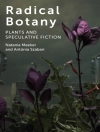This book analyzes a significant group of contemporary historical fictions that represent damaging, even catastrophic times for people and communities; written “after the wreck, ” they recall instructive pasts. The novels chronicle wars, slavery, racism, child abuse and genocide; they reveal damages that ensue when nations claim an exalted, exceptionalist identity and violate the human rights of their Others. In sympathy with the exiled, writers of these contemporary historical fictions create alternative communities on the state’s outer fringes. These fictive communities include where the state excludes; they foreground relations of debt and obligation to the group in place of individualism, competition and private property. Rather than assimilating members to a single identity with a unified set of views, the communities open multiple possibilities for belonging. Analyzing novels from Britain, Australia and the U.S., along with additional transnational examples, Susan Strehle explores the political vision animating some contemporary historical fictions.
Inhoudsopgave
Chapter 1 Introduction.- Chapter 2
Sacred Hunger, Barry Unsworth.- Chapter 3
The Narrow Road to the Deep North, Richard Flanagan.- Chapter 4
Home and
God Help the Child, Toni Morrison.- Chapter 5
La Rose, Louise Erdrich.- Chapter 6
Lincoln in the Bardo, George Saunders.- Chapter 7 Conclusion.
Over de auteur
Susan Strehle is Distinguished Service Professor of English at Binghamton University (SUNY), USA. She is the author of Fiction in the Quantum Universe and Transnational Women’s Fiction: Unsettling Home and Homeland (Palgrave 2008). With Mary Paniccia Carden, she co-edited Doubled Plots: Romance and History (2003). She has published several articles on contemporary historical fiction.












